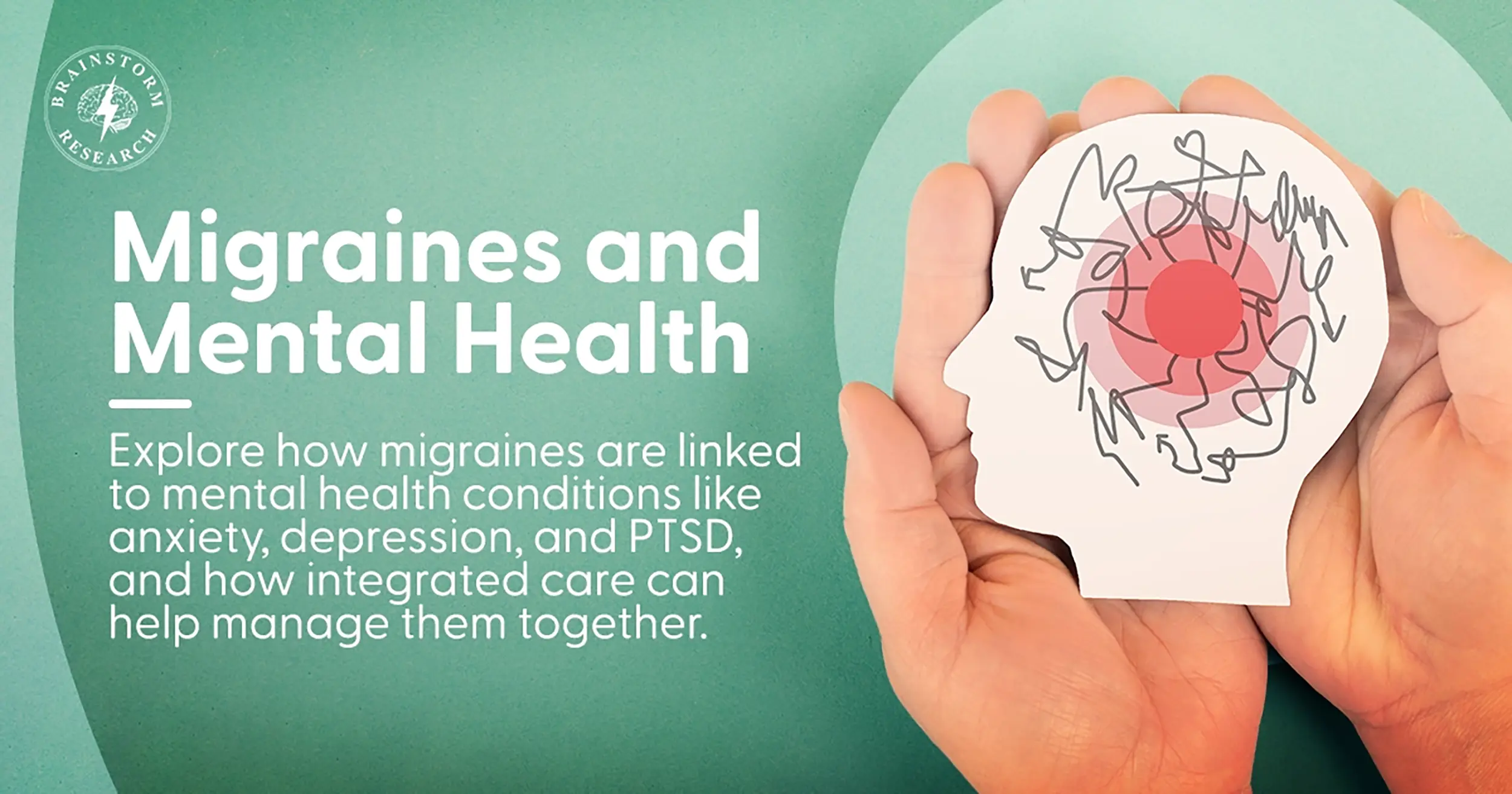Migraines are far more than just severe headaches. For millions, they are debilitating neurological events that can cause throbbing pain, visual disturbances, extreme sensitivity to light and sound, and nausea. But what often goes unacknowledged is the profound impact migraines can have on mental well-being. The chronic, unpredictable nature of migraines frequently casts a long shadow, intertwining with conditions like anxiety, depression, and even PTSD, creating a complex interplay that demands integrated care.
The Link Between Migraine and Mental Health
The connection between migraines and mental health is not simply a matter of enduring pain leading to sadness. Emerging research suggests a more fundamental, biological link. Both migraines and mood disorders share common neurochemical pathways, particularly involving neurotransmitters like serotonin. This shared biological vulnerability means that if you experience migraines, you are at a significantly higher risk of developing conditions such as:
- Anxiety: The constant anticipation of the next migraine attack, the fear of missing work or social events, and the feeling of losing control can fuel pervasive anxiety.
- Depression: The chronic pain, disability, and disruption to daily life caused by migraines can lead to feelings of hopelessness, isolation, and persistent low mood.
- PTSD: For some, severe or frequent migraine attacks, especially those with frightening aura symptoms, can be traumatic events, leading to symptoms akin to post-traumatic stress disorder.
This relationship often becomes a vicious cycle: stress and anxiety can trigger migraines, which in turn worsen mental health, making individuals more susceptible to future attacks.
Integrated Care is Key for Migraine and Mental Well-being
Given this strong connection, a holistic approach to treatment is essential. Traditional care often separates physical and mental health concerns, but for migraine sufferers with co-occurring mental health conditions, this can be ineffective. Integrated care focuses on treating the whole person, recognizing that addressing one condition can positively impact the other.
This comprehensive approach might involve:
- Medication Management: Optimizing migraine preventative and acute treatments, while also considering medications that can address both migraine and mental health symptoms (e.g., certain antidepressants).
- Behavioral Therapies: Cognitive Behavioral Therapy (CBT) can help individuals identify and change negative thought patterns related to their pain and mood. Relaxation techniques, mindfulness, and biofeedback can also empower individuals to better manage stress and migraine triggers.
- Lifestyle Adjustments: Regular sleep, a balanced diet, consistent exercise (when feasible), and stress reduction techniques are crucial for both migraine and mental health management.
- Support Systems: Connecting with support groups, therapists, and understanding loved ones can provide emotional resilience and practical coping strategies.
Breaking the Cycle: Empowering Your Journey to Wellness
Understanding the intricate link between migraines and mental health is the first step toward breaking the cycle. By adopting an integrated care approach, individuals can gain better control over both their physical pain and emotional well-being, leading to a significantly improved quality of life. It’s about recognizing that both aspects of health deserve equal attention and tailored strategies.
Brainstorm Research is currently enrolling for clinical trials focused on advancing treatments for a range of neurological conditions, including migraines.


